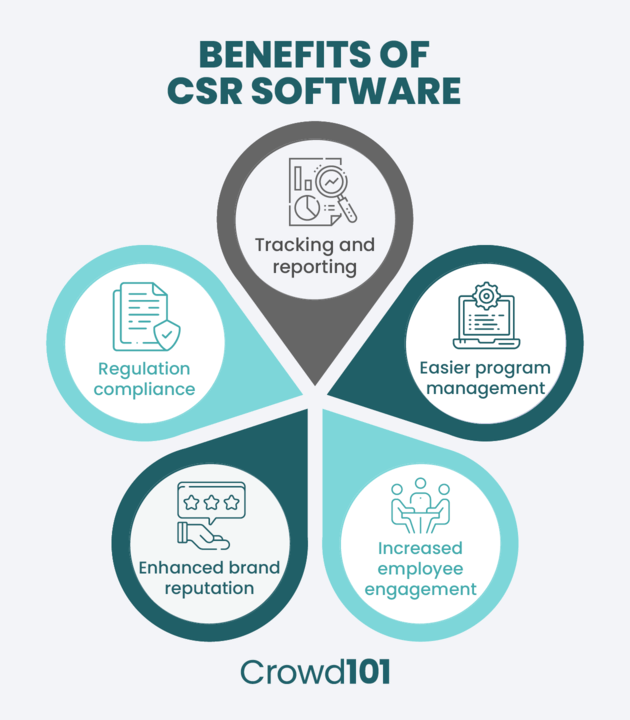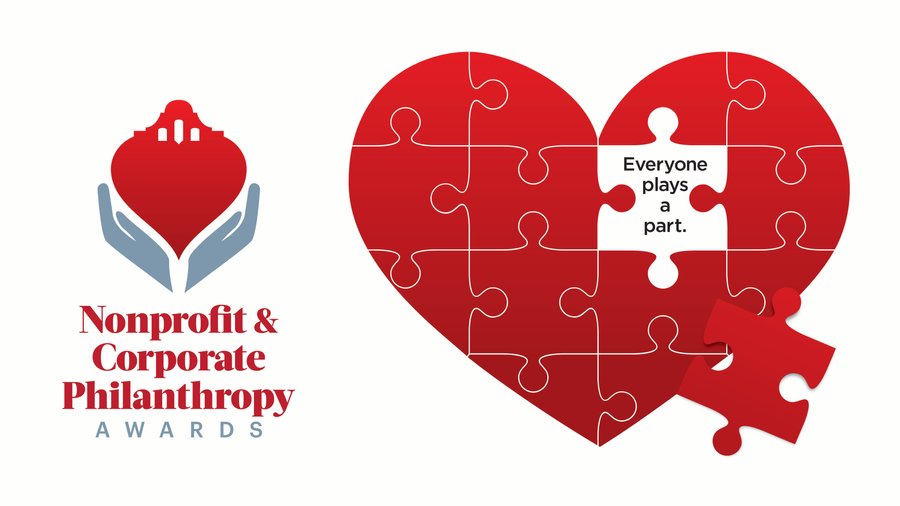Exploring Exactly How Corporate Philanthropy Shapes Brand Name Online Reputation and Client Loyalty
Corporate philanthropy significantly influences brand name online reputation and client loyalty. Firms that involve in authentic charitable initiatives often see a favorable shift in how customers perceive them. This placement of values fosters trust fund and emotional links with audiences. However, the performance of these philanthropic efforts can differ considerably. Recognizing what absolutely resonates with customers is vital for brands seeking to boost their social effect and market placement. What approaches will become crucial for future success?
The Development of Company Philanthropy
As companies significantly recognize their function in society, the advancement of corporate philanthropy has actually changed from mere philanthropic contributions to a tactical component of brand identification. Firms engaged in philanthropy mainly for tax obligation advantages or to enhance their public picture. With time, this method moved as stakeholders-- consisting of capitalists, employees, and customers-- demanded a more authentic commitment to social obligation.
Organizations started straightening their philanthropic initiatives with their core values and business objectives, resulting in more impactful and thoughtful contributions. This modification has actually motivated business to buy lasting practices and community development, fostering a sense of purpose that reverberates with customers.
In addition, technological developments have helped with transparency and engagement, permitting organizations to display their humanitarian efforts a lot more efficiently. Business philanthropy has arised as an essential component of service strategy, with companies accepting the chance to positively influence society while boosting their general brand name story.
The Impact of Philanthropy on Brand Name Perception
While firms participate in philanthropic efforts to promote social good, these initiatives significantly shape brand perception amongst customers. Business philanthropy can boost a brand's photo by associating it with favorable social influence and neighborhood involvement. Customers frequently regard brands that actively take part in charitable tasks as even more trustworthy and responsible. This understanding can affect acquiring choices, as consumers may like brand names that demonstrate a dedication to social issues.

Structure Emotional Links Via Giving
Business philanthropy acts as an effective device for boosting brand identity by linking corporate values with neighborhood requirements. With strategic giving, companies can promote neighborhood interaction and produce shared values that resonate with customers on an emotional level. This method not only enhances brand credibility but additionally constructs long lasting links in between services and their stakeholders.
Enhancing Brand Name Identification
When business engage in philanthropic efforts, they not only add to social great however likewise forge deeper emotional connections with their audiences. By aligning their brand with charitable causes, companies improve their identity and signal worths that reverberate with consumers. This alignment develops a story that goes past products and services, inviting consumers to take part in a shared goal. As customers significantly prioritize purpose-driven brands, firms that actively involve in providing can differentiate themselves in a jampacked market. Such efforts promote a sense of commitment amongst consumers that feel directly connected to the brand's worths. Ultimately, company philanthropy ends up being a vital device for improving brand name identity, cultivating lasting partnerships based on common beliefs and psychological engagement.
Fostering Area Engagement
Countless researches suggest that companies participating in community-focused philanthropic efforts can considerably reinforce psychological connections with their stakeholders. By spending in local jobs and sustaining social causes, services grow a sense of belonging and depend on within the community. This involvement promotes a favorable brand picture, as consumers value companies that demonstrate authentic problem for societal problems. Employees typically really feel a lot more proud and inspired to be connected with a company that focuses on area well-being. Therefore, consumers are more probable to create commitment in the direction of brand names that proactively add to purposeful reasons. Ultimately, promoting neighborhood interaction with philanthropy not only improves brand track record however additionally constructs long-term psychological connections that profit both the area and the business it serves.
Developing Shared Worths
Exactly how can services successfully produce shared values that reverberate with their stakeholders? Firms can accomplish this by straightening their kind initiatives with their core objective and the interests of their communities. By participating in campaigns that attend to regional needs, companies foster emotional links with customers, enhancing brand name commitment. For instance, partnering with non-profits that reflect shared values reinforces the brand name's picture and demonstrates dedication to social obligation. Furthermore, transparent interaction regarding these efforts permits stakeholders to see the concrete impact of their payments. Eventually, by incorporating common values right into their corporate philanthropy, firms not only boost their credibilities but also grow long lasting relationships with clients, resulting in raised loyalty and trust fund. This positioning is essential in modern-day consumer decision-making.
Situation Studies: Successful Philanthropic Campaigns
Checking out successful kind campaigns exposes various methods that boost brand online reputation. Impactful community initiatives, ingenious collaboration models, and long-lasting involvement techniques have actually proven efficient in cultivating positive links with customers. These case research studies highlight the value of thoughtful corporate giving up attaining both social and business goals.
Impactful Area Initiatives
Numerous business have efficiently leveraged philanthropic campaigns to improve their brand name online reputation while making a meaningful impact in their areas. A modern technology company released an electronic proficiency program in underserved areas, providing training and resources that empowered regional citizens. This effort not only contributed to neighborhood advancement however likewise positioned the company as a socially accountable leader. In a similar way, a significant food business carried out an appetite relief campaign, partnering with local nonprofits to distribute dishes to family members in demand. This initiative enhanced community ties and fostered customer commitment. With these impactful efforts, companies have demonstrated their commitment to social responsibility, effectively aligning their brand name worths with the requirements of the areas they offer, eventually enhancing their total online reputation.
Ingenious Partnership Designs
The success of impactful community initiatives often pivots on innovative collaboration designs that unite varied stakeholders to deal with complex social obstacles. Instance research studies illustrate just how corporations, non-profits, and federal government entities can work together effectively. As an example, a multinational firm partnered with a regional non-profit to release an education program, merging resources and proficiency to improve community proficiency prices. An additional example included a technology company and a health care company joining forces to establish a telemedicine service for underserved populaces. These partnerships not only magnified the reach of kind efforts however additionally reinforced the brands' reputations by aligning their goals with area needs. Eventually, ingenious collaboration models work as a driver for significant change and foster stronger links in between brand names and their customers.
Lasting Engagement Techniques

Determining the ROI of Business Social Responsibility
As companies significantly purchase business social responsibility (CSR) campaigns, comprehending the return on investment (ROI) related to these initiatives ends up being vital. Determining ROI in CSR is multifaceted, commonly including both quantitative and qualitative metrics. Financial returns can be analyzed with increased sales, boosted brand loyalty, and boosted worker morale, which can cause higher performance. Additionally, firms may assess cost financial savings connected to sustainable methods, such as reduced waste or power consumption.
Qualitatively, the effect of CSR on brand name track record can be reviewed through consumer understanding research studies and social media sites view analysis. Surveys can offer insights into how CSR activities affect consumer commitment and trust. Moreover, benchmarking against industry requirements can aid organizations assess their CSR effectiveness. Ultimately, a detailed method to determining ROI makes it possible for companies to make informed decisions regarding future CSR financial investments, straightening techniques with both monetary efficiency and social influence
Customer Assumptions and Corporate Responsibility
Progressively, customers anticipate firms to operate with a solid sense of company obligation, checking out moral techniques as a requirement for brand name commitment. This change in assumption reflects a growing awareness of environmental and social problems, leading clients to favor brands that line up with their values. Consumers are much more inclined to support companies that take part in transparent practices, demonstrate sustainability, and add favorably to their areas.
Social media magnifies these expectations, permitting customers to share their experiences and opinions quickly. Brands that fail to fulfill these honest standards risk reaction, while those that accept corporate duty frequently enjoy superior track record and customer commitment. As consumers require accountability, firms should incorporate business social duty right into their core strategies, focusing on ethical habits not just as an advertising and marketing technique, but as a basic aspect of their procedures. This placement can inevitably result in more powerful brand fondness and continual success in competitive markets.
Future Fads in Corporate Philanthropy and Brand Name Commitment
The landscape of corporate philanthropy is advancing, influenced by the elevated customer expectations bordering corporate obligation. Firms are increasingly integrating social influence into their core company methods, not merely as an ancillary task. Future fads indicate a shift towards openness, with brand names sharing comprehensive info concerning their philanthropic initiatives and their direct impacts on areas.
Technology is playing a crucial function, allowing real-time interaction in between brand website here names and customers. Social media site systems facilitate direct communication, allowing consumers to articulate their assumptions and hold brands accountable. Additionally, younger generations, particularly Millennials and Gen Z, prioritize sustainability and ethical practices, driving businesses to adopt more diligent strategies.
As company philanthropy comes to be identified with brand name identification, business that authentically align their missions with societal demands are most likely to promote stronger customer loyalty. This merging of worths will eventually shape the future of corporate reputation and customer partnerships in a progressively conscientious marketplace.
Regularly Asked Inquiries
Exactly How Do Consumers Find Out Concerning a Business's Philanthropic Efforts?
Consumers uncover a business's philanthropic initiatives with various networks, including social media sites, press launches, neighborhood events, and word-of-mouth. These methods assist in awareness, making it possible for Going Here people to engage with brand names that align with their worths and rate of interests.
What Role Does Staff Member Involvement Play in Company Philanthropy?
Worker involvement in company philanthropy enhances involvement, promotes a feeling of ownership, and reinforces team communication - corporate philanthropy. This involvement often magnifies the impact of philanthropic initiatives, causing greater understanding and assistance for the business's kind efforts
Can Corporate Philanthropy Backfire on a Brand name's Reputation?
If perceived as insincere or opportunistic, company philanthropy can indeed backfire on a brand's online reputation. Negative public understanding might arise, resulting in lessened trust and loyalty amongst customers who prioritize authenticity in company activities.
Are Smaller Companies as Efficient in Philanthropy as Larger Companies?
Smaller sized firms can be just as effective in philanthropy as larger companies, commonly showing dexterity and credibility. Their localized efforts may resonate much more deeply with neighborhoods, cultivating real links in spite of minimal sources contrasted to their larger counterparts.
Just How Can Business Select the Right Creates to Assistance?
Companies can pick the appropriate bring on by aligning their worths with community needs, examining stakeholder passions, and assessing prospective influence. This critical approach promotes credibility, improves engagement, and reinforces links with customers and the broader community.
While business engage in humanitarian initiatives to promote social excellent, these campaigns greatly shape brand name assumption amongst consumers. As consumers increasingly focus on purpose-driven brand names, business that actively involve in providing can differentiate themselves in a crowded market. Several firms have effectively leveraged philanthropic projects to boost their brand credibility while making a meaningful influence in their neighborhoods. Increasingly, consumers anticipate companies to run with a strong sense of company obligation, seeing moral methods as a prerequisite for brand name loyalty. As company philanthropy comes to be associated with brand name identity, companies More Help that authentically straighten their missions with social needs are most likely to foster more powerful client commitment.